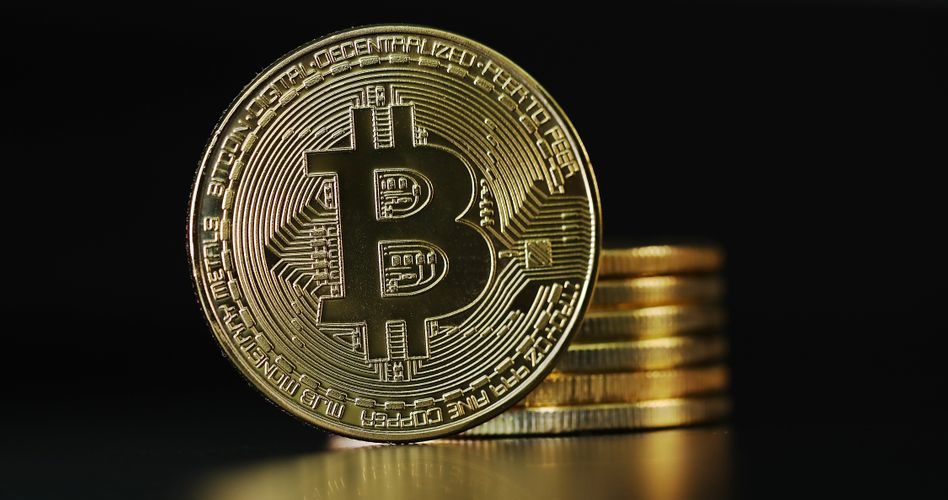The operators of the crypto exchange Africrypt promised returns of up to ten percent per day. Now the founding brothers have gone underground with Bitcoins worth around 1.8 billion euros. Should investors have suspected something?
It sounded promising, downright spectacular: Customers should receive a return of up to ten percent if they invested their money in trading crypto currencies with Africrypt – per day. But then everything turned out differently, downright spectacularly different. The two founders of the South African trading exchange have disappeared, and with them around 70,000 Bitcoins.
As reported by Bloomberg, 17-year-old Ameer C. and his 20-year-old brother Raees probably made off. The two had founded the company two years ago. The siblings are now no longer available and have apparently disappeared to Great Britain, along with their customers’ bitcoins, which are currently worth around 1.8 billion euros.
The suspicion that it was a so-called exit scam first arose in mid-April when Bitcoin reached an all-time high of around 54,000 euros. The loot with which the Africrypt brothers disappeared was worth around 3.7 billion euros at the time. In the meantime, the Bitcoin price has fallen by almost half, partly due to a tough political course by the Chinese government against crypto currencies.
Suddenly there are no e-mails to investors
In any case, on April 13th, the Africrypt investors received a last email from Ameer C. In it he wrote, according to the South African news portal IT Web, that all Africrypt transactions had to be stopped due to “a security breach,” including those of Africrypt self-managed digital exchanges (wallets) of investors are affected. It was not clear to what extent personal customer data was read, it said in the message. But the email made it clear that allegedly deposits had been stolen.
Particularly curious is the passage in the e-mail in which, according to Bloomberg, C. asked customers not to report the alleged data breach to lawyers or authorities, otherwise the process of recovering the missing amounts would be delayed. C. promised to keep customers up to date. But then nothing more happened. The website went offline, only the Bitcoin wisdom from Africrypt on the photo platform Instagram is still available. The brothers have not sent soothing emails to their investors since then.
So they became skeptical. Around 20 investors commissioned a law firm to track down the Africrypt founders and to get back the money, which is said to have been sent through so-called mixers and to large crypto pools, among other things, in order to make it more difficult to track the money, as the finance portal “Moneyweb” reports.
It got even worse: According to “IT Web”, the South African financial regulator had to stop investigating the case because Bitcoin is not considered a financial product in South Africa. But it is now trying to find another way to claim jurisdiction.
Popular scam among scammers
Crypto expert Jens Mattke and his team have been observing for several years that cases of fraud involving Bitcoin and Co. are increasing. This is mainly due to the target group, which has changed, says the business IT specialist from the University of Bamberg in an interview with SPIEGEL. “In the beginning, it was mainly investors who were familiar with cryptocurrencies,” says Mattke. “There are now more people with less technical knowledge who have heard that you can get rich within a few months.”
In his experience, crypto fraud always works in a similar way. “They promise high returns, do a lot of advertising and use false statements from celebrities,” says Mattke. These are signs that the company is targeting people’s greed for profit. “If you can be happy to get terms of five percent a year, then ten percent a day just sounds too good to be true.”
If it turns out that the Africrypt brothers have actually deceived their customers, it could be the biggest crypto scam to date. The brothers are by no means the only ones with the mesh. According to the analysts from “Chainalysis”, fraud has been the most profitable crypto crime for years, followed by black market trading and bitcoin extortion.
Last year alone, criminals stole 2.6 billion dollars with fraudulent schemes, most of which went to Mirror Trading International. The company promised interest gains of 0.5 percent a day before the boss ran away. The booty: cryptocurrency from 471,000 digital exchanges valued at around 490 million euros.
What crypto investors should look out for
Jens Mattke recommends that investors take a close look at the online crypto exchange before entering digital currency trading. Anyone who is not that technically savvy should ask friends who are familiar with it. “As with all investments, the feelings have to be hidden and the mind used,” says the scientist. Studies have shown that it is advisable to wait a day before buying in order to distance yourself from the “emotional rush of the moment”.
You should also make sure that the Federal Financial Supervisory Authority (Bafin) trusts the provider. “If the token sale is listed on the Bafin website, that’s a very good sign,” says the researcher.
In the case of online exchanges, the main problem is that the private keys are no longer with the customer – and the platform operators have full access to the Bitcoin exchanges. The safest option is still a hardware wallet, such as a USB stick on which the private key for accessing the money is stored in encrypted form. However, it is not that easy to set up, says Mattke. “So I wouldn’t recommend this to everyone I know.”

